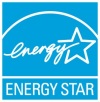|
Click on photo to view larger image



|
Energy efficiency pays off – in more ways than the obvious. There are actions Marylanders can take to put more money in your bank account while keeping our air and planet healthy. Having a well insulated home, using Energy Star appliances and driving a properly maintained vehicle saves on fuel and energy costs. We are encouraged to weatherize, fix leaky faucets, and turn off lights in unoccupied rooms.
‹ Products in more that 50 categories are eligible for the Energy Star. Energy Star products use less energy, save money and help the environment.
The Buzz on Global Warming
By now, most of us have listened to, or read, news items about “global warming,” “climate change,” and “greenhouse gases.” Modern human activities, such as electricity production, driving vehicles and agricultural practices produce huge amounts of air pollutants into the Earth’s atmosphere. Some air emissions, such as carbon dioxide (CO2) and methane, called greenhouse gases (GHG), absorb infrared energy from the sun, trapping heat energy in the atmosphere.
MDE: Doing Our Part to Regulate Noxious Pollutants
“Many pollutants, such as NOx [nitrogen oxides] and ground level ozone, have long been regulated and we have been successful in reducing those pollutants,” says Tad Aburn, director of MDE’s Air and Radiation Management Administration.
“Greenhouse gases present a new challenge and Maryland is moving ahead aggressively to address the challenge,” explains Aburn, “Maryland is part of a regional effort to control and reduce greenhouse gas emissions from power plants.”
RGGI – The 10 State Initiative
Maryland’s Healthy Air Act, signed into law on April 6, 2006, requires Maryland to participate in the Regional Greenhouse Gas Initiative, a program intended to reduce CO2 emissions from electricity generators. This regional program involves 10 states – Maine, Massachusetts, Delaware, New Hampshire, Rhode Island, Vermont, Connecticut, New York, New Jersey and Maryland.
Part of Maryland’s strategy at GHG reductions is to look at emissions from every conceivable source and develop programs that promote energy efficiency and alternative energy sources to reduce carbon dioxide emissions. Earlier this year, Governor Martin O’Malley signed into law the Clean Car Act, which is expected to reduce CO2 emissions by 30 percent by 2016.
“We encourage voluntary actions that promote better air quality,” says Aburn. “These can include behavior changes, good consumer choices and improving the energy efficiency at homes and businesses.”
Another way to save money and improve energy efficiency is to make home improvements or purchases that earn a federal tax credit. The federal Energy Policy Act of 2005 (EPACT) offers tax credits to consumers and businesses for certain purchases, building improvements and construction from January 1, 2006, through December 31, 2007.
Consumers who purchase and install specific products, such as energy-efficient windows, insulation, doors, roofs, and heating and cooling equipment in the home can receive a tax credit of up to $500 beginning in January 2006. The EPACT also provides a credit equal to 30 percent of qualifying expenditures for purchase for qualified photovoltaic property and for certain solar water heating equipment. The credit shall not exceed $2,000.
Apply Now for Tax Credits!
Businesses are eligible for tax credits for building energy- efficient buildings, and for improving the energy efficiency of commercial buildings, as outlined in EPACT. Both businesses and consumers may get a tax credit for eligible fuel-efficient and hybrid vehicles.
The window for this tax credit incentive is set to close at the end of this calendar year, on December 31, 2007. There is still time to perform or contract for home or business improvements that will earn the credit.
If you do not have plans or funds for extensive improvements, there are many things you can do to keep Maryland’s air healthy and reduce energy and fuel costs. Here are a few action items that are easy to do:
· Change the air filter in your home’s HVAC system monthly
· Close window blinds and curtains during hot sunny days to keep
the heat out
· Use cold water in your washer when possible
· Run your washer with a full load of laundry
· Run your dishwasher with a full load of dishes
· Turn off lights and appliances not in use
· Replace incandescent lights bulbs with compact fluorescent lamps
· Reduce driving and use public transit when possible.
Click here to learn more about federal EPACT tax credits. Click here to learn more about local and state incentives or click here for more information about the Regional Greenhouse Gas Initiative.
|